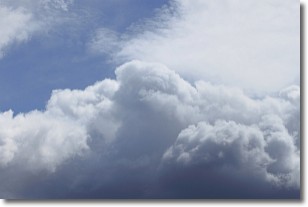Weather Alert in North Carolina
Beach Hazards Statement issued August 2 at 4:17AM EDT until August 2 at 8:00PM EDT by NWS Newport/Morehead City NC
AREAS AFFECTED: Hatteras Island
DESCRIPTION: * WHAT...Dangerous rip currents, large breaking waves expected, and strong longshore currents in the surf zone. * WHERE...For the large breaking waves, beaches north of Cape Hatteras. For the Dangerous rip currents and strong longshore currents, all Hatteras Island beaches. * WHEN...Through this evening. * IMPACTS...Rip currents can sweep even the best swimmers away from shore into deeper water. Dangerous shore break can throw a swimmer or surfer head first into the bottom causing neck and back injuries. Strong longshore currents will create dangerous swimming conditions. * ADDITIONAL DETAILS...The most likely time for strong rip currents to occur is a couple hours either side of low tide, which will occur around 8 AM this morning.
INSTRUCTION: Life-threatening rip currents. If caught in a rip current, remain calm. Swim in a direction following the shoreline. If tired, float or tread water until out of the rip current. If unable to escape, face the shore and call or wave for help. Shore break occurs when waves break directly on the beach. It is extremely important to protect your head and neck whenever you are in breaking waves by keeping your hands in front of you at all times. Strong longshore currents can sweep swimmers and surfers into rip currents, piers, jetties and other hazardous areas. In many cases, the longshore current is strong enough to prevent swimmers from being able to keep their feet on the bottom making it difficult to return to shore.
Want more detail? Get the Complete 7 Day and Night Detailed Forecast!
Current U.S. National Radar--Current
The Current National Weather Radar is shown below with a UTC Time (subtract 5 hours from UTC to get Eastern Time).

National Weather Forecast--Current
The Current National Weather Forecast and National Weather Map are shown below.

National Weather Forecast for Tomorrow
Tomorrow National Weather Forecast and Tomorrow National Weather Map are show below.

North America Water Vapor (Moisture)
This map shows recent moisture content over North America. Bright and colored areas show high moisture (ie, clouds); brown indicates very little moisture present; black indicates no moisture.

Weather Topic: What are Nimbostratus Clouds?
Home - Education - Cloud Types - Nimbostratus Clouds
 Next Topic: Precipitation
Next Topic: Precipitation
A nimbostratus cloud is similar to a stratus cloud in its formless,
smooth appearance. However, a nimbostratus cloud is darker than a stratus cloud,
because it is thicker.
Unlike a stratus cloud, a nimbostratus cloud typically brings with it the threat
of moderate to heavy precipitation. In some cases, the precipitation may evaporate
before reaching the ground, a phenomenon known as virga.
Next Topic: Precipitation
Weather Topic: What is Rain?
Home - Education - Precipitation - Rain
 Next Topic: Shelf Clouds
Next Topic: Shelf Clouds
Precipitation in the form of water droplets is called rain.
Rain generally has a tendency to fall with less intensity over a greater period
of time, and when rainfall is more severe it is usually less sustained.
Rain is the most common form of precipitation and happens with greater frequency
depending on the season and regional influences. Cities have been shown to have
an observable effect on rainfall, due to an effect called the urban heat island.
Compared to upwind, monthly rainfall between twenty and forty miles downwind of
cities is 30% greater.
Next Topic: Shelf Clouds
Current conditions powered by WeatherAPI.com




